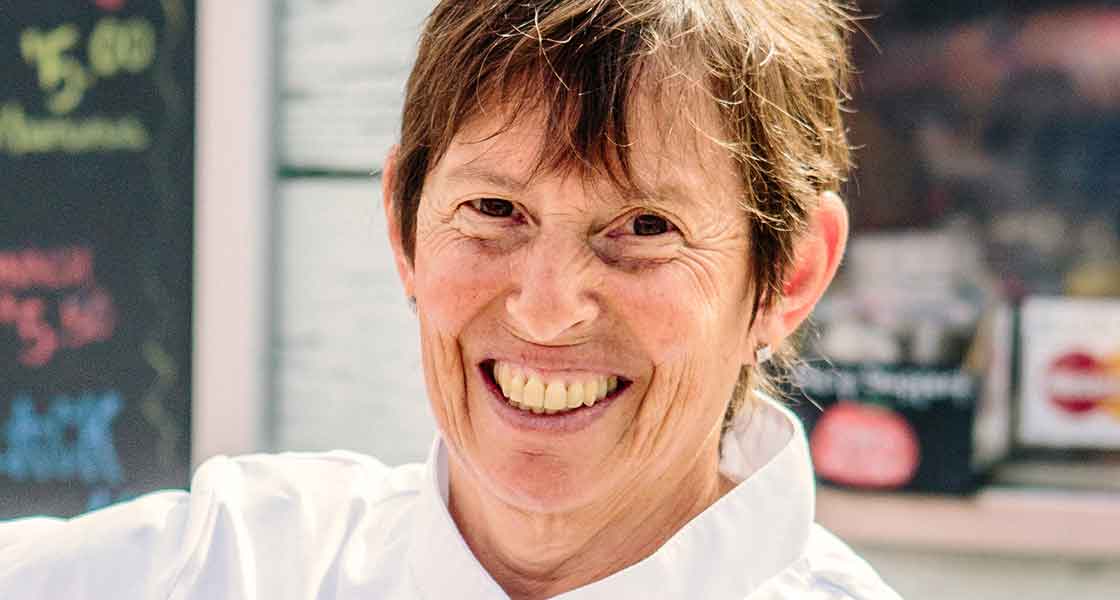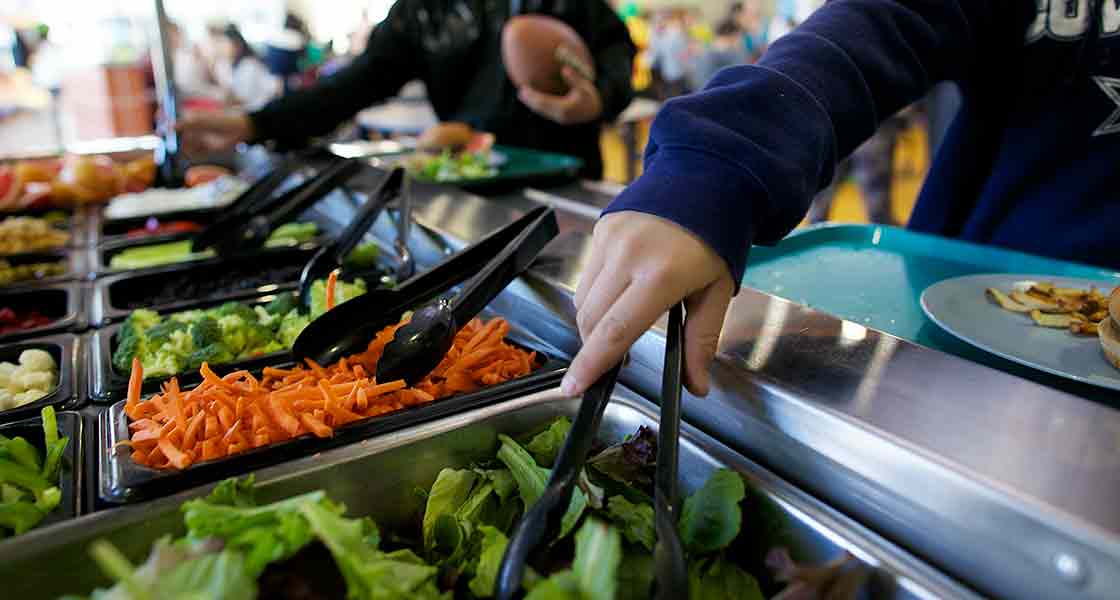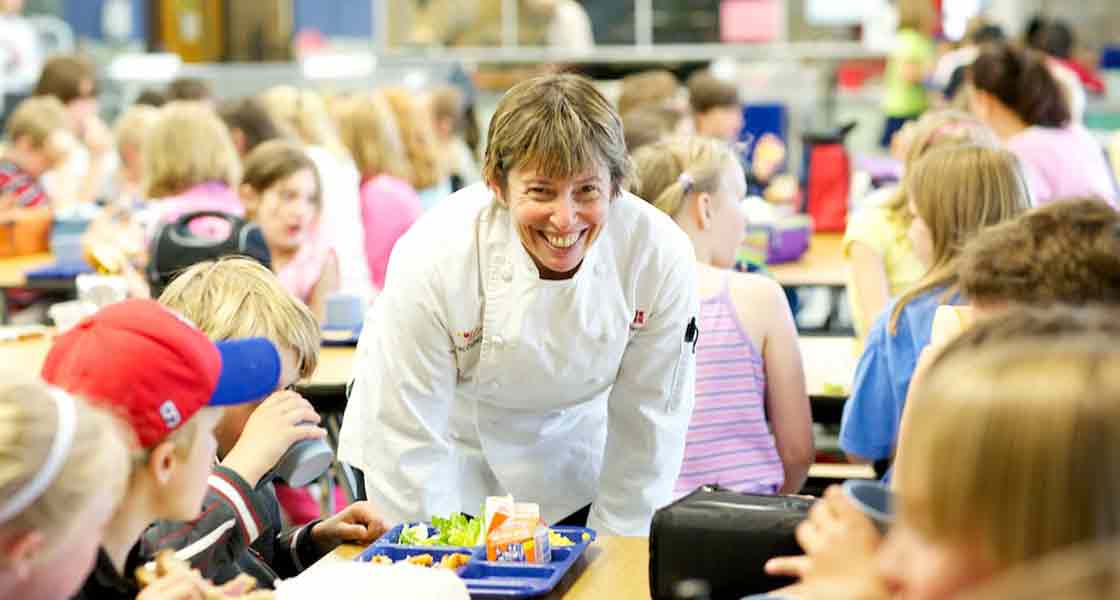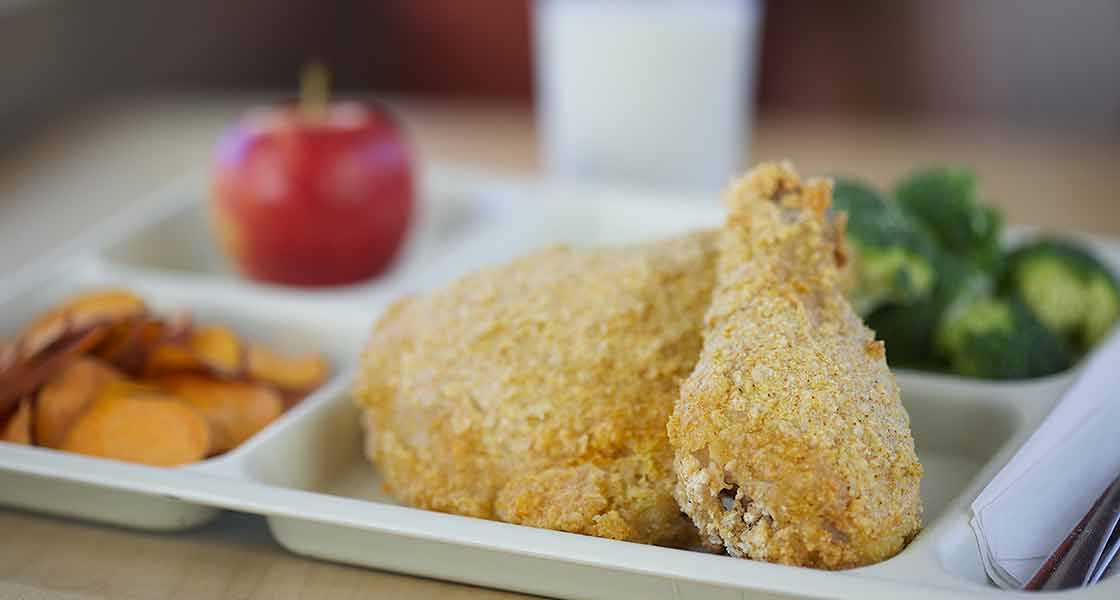Chef Ann Cooper: The Renegade Lunch Lady
CULINARY POINT OF VIEW
A graduate of the Culinary Institute of America, Ann Cooper has been a chef for more than 40 years, 17 of those in school food programs. In 2009, she founded the nonprofit Chef Ann Foundation (CAF) to focus on solutions to the school food crisis. She also serves as the food services director for the Boulder Valley School District in Boulder, Co., where she is known as the “Renegade Lunch Lady.” In 2016, she was named "One of the Top 50 Food Activists" by the Academy of Culinary Nutrition.

all images by Kirsten Boyer
Q: You began your career in school food in 1999, after years of experience as a high-end chef. What was the impetus for the move?
Ann Cooper: I started cooking in 1973 and went on to culinary school and graduated in 1979. From there, I worked in restaurants, hotels, and cruise ships, but along the way I started to focus on sustainable food and local agriculture. In the late 1990s, I got a call from the Ross School—a private school in New York—asking me if I would take over as executive chef and director of wellness and nutrition. I took that job and then went on to work at public schools in Berkley, Calif., and now Boulder, Colo. When I first took the job in New York, I really felt like everything I had done before—working in hotels, cooking for large parties, and my work on sustainability—had come together in this new job to improve school food.
Q: What was that first year like? What were your first impressions of America’s school food?
Cooper: The first school I was at was a private school in East Hampton, N.Y. It was very well funded and it was more like a restaurant. It really made me start to think about what kids eat and what they will eat, and how you connect education and food. It was a good job and very interesting, and it really elevated the work we were doing. Other people started really looking at the work we were doing. Alice Waters came to visit and that’s actually how I ended up in Berkley.
Q: What made you decide to start the Chef Ann Foundation in 2009?
Cooper: It was sort of a natural outcome as the work became more and more high profile, first in New York, Berkley, and then Boulder. I started speaking about the work we were doing and people wanted to replicate it. Originally, I thought I was going to make an actual physical toolbox, but I quickly realized that it needed to be digital. So what we have today is the extension of that and how the website and ideas morphed through the foundation.

Q: Can you talk a little about the programs and grants that your Foundation offers?
Cooper: The initial website that we built, which is The Lunchbox, is really our premier project, because it has all the tools a school district would need to segue way from highly-processed to cooked-from-scratch food. But we have lots of different programming. We are the managing partner for Let’s Move Salad Bars to Schools. We’ve raised more than $12 million and as of the end of 2016 we had donated 5,000 salad bars to schools across the country.
We have another program called Project Produce in which we grant schools up to $2,500 to do food education in the schools. We have another program called The School Food Support Initiative where we do deep dives into school districts and help them through assessments and strategic planning to segue way from highly-processed to cooked-from-scratch food.
Q: You have stated that education is key to changing the way kids eat. Can you describe some of the ways you have implemented this at your schools and what the student response was?
Cooper: Here in Boulder we do more than 200 events each year with the kids—everything from tastings, Iron Chef competitions, chef demos, farmer days, and harvest of the month. The kids respond really positively to the events. Kids will try anything, especially with positive peer reinforcement.

Q: What changes need to be made on a national policy level to improve school food?
Cooper: Well, first of all, we have to make sure that the policies don’t get rolled back. It was just recently announced that basically the CNR [Child Nutrition Reauthorization Act] is dead in the water, at least for a few more months. And who knows when Congress is going to take it up. The CNR’s a year behind and they haven’t even started on the farm bill yet. So, I don’t think it’s a matter of what more significant changes we need, it’s a matter of making sure we don’t go backwards. At least in the short term.
In the long term, I think one of the next things we should tackle is sugar limits. We also need more money for school food. The increases schools are getting every year aren’t matching the cost of living increases and the cost of food and payroll.
Q: In 10 years, what do you hope a child sees when he/she enters the cafeteria?
Cooper: First of all, the cafeteria itself should be a place where kids can sit and socialize with friends. There should be natural light, different kinds of seating, and it should be sound sensitive. It should also have an open kitchen area where the food is cooked from scratch. We should have salad bars in every school. And, we should have food that’s sensitive to the demographics of the student body.
This interview has been edited and condensed for clarity.

Oven Fried Chicken
Chef Ann Cooper shares two recipes from the Chef Ann Foundation's Lunch Box recipe database. Many of these kitchen- and kid-tested recipes are courtesy of Boulder Valley School District where the chef and production teams have been refining their scratch cook recipes and expanding kids’ palates over the last seven years. They are scalable and include analysis and costing details.


